Largest Selection of New and Used Office Furniture! Call 1-855-885-3375 or visit a showroom today!
Blog
10 Essential Tips for Choosing the Perfect Office Table and Chair for Productivity
When it comes to creating a productive workspace, the choice of office table and chair plays a crucial role. As renowned ergonomics expert Dr. Sarah Jenkins states, "The right office table and chair not only enhances comfort but also significantly boosts productivity by promoting better posture and focus." In today's fast-paced work environment, investing time in selecting the ideal office table and chair can lead to profound improvements in efficiency and well-being.
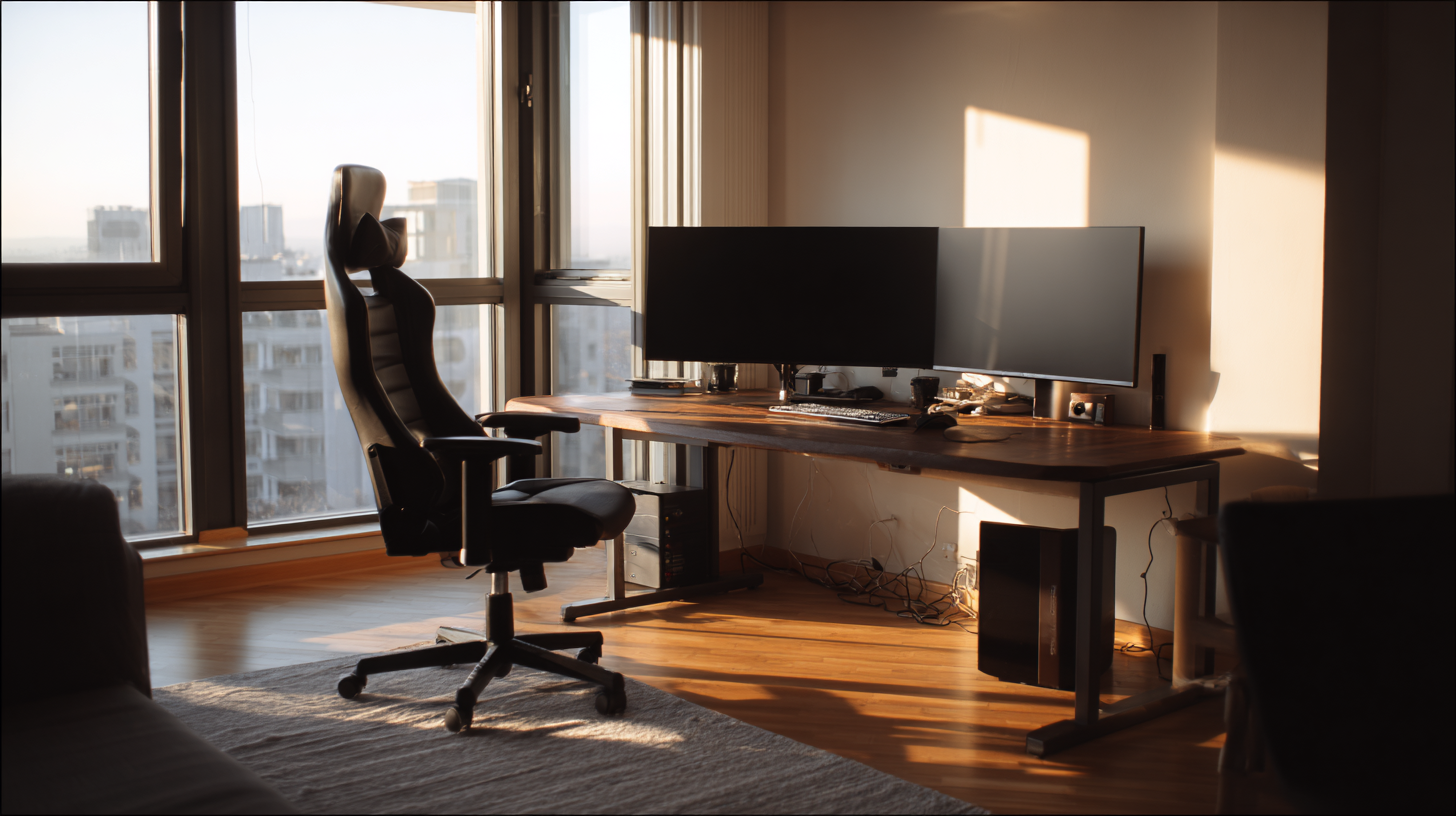
In this article, we will explore ten essential tips to help you navigate the complexities of choosing the perfect office table and chair. By understanding the unique demands of your work environment and implementing expert advice, you can create a workspace that not only looks appealing but also fosters a high level of productivity. Let’s delve into the key aspects of selecting these vital office components.
Choosing Ergonomic Designs: Boosting Comfort and Reducing Work-Related Injuries
When choosing office furniture, prioritizing ergonomic designs is vital for enhancing comfort and minimizing the risk of work-related injuries. An ergonomic chair should support the natural curve of the spine, allowing for a neutral posture. Look for features like adjustable height, lumbar support, and armrests that encourage proper alignment. Spending long hours in a poorly designed chair can lead to chronic pain and discomfort, ultimately affecting productivity and job satisfaction.
Equally important is selecting an ergonomic office table. The table height should complement the chair to maintain a comfortable working position. Consider a desk with adjustable height settings to accommodate both sitting and standing positions, promoting healthier movement throughout the day. Additionally, keep your workspace organized to reduce strain on your body by ensuring that frequently used items are easily accessible. Incorporating these ergonomic elements will not only boost productivity but also foster a healthier working environment.
Office Furniture Ergonomics: Impact on Productivity
Understanding Space Planning: Maximizing Office Layout Efficiency for Better Workflow
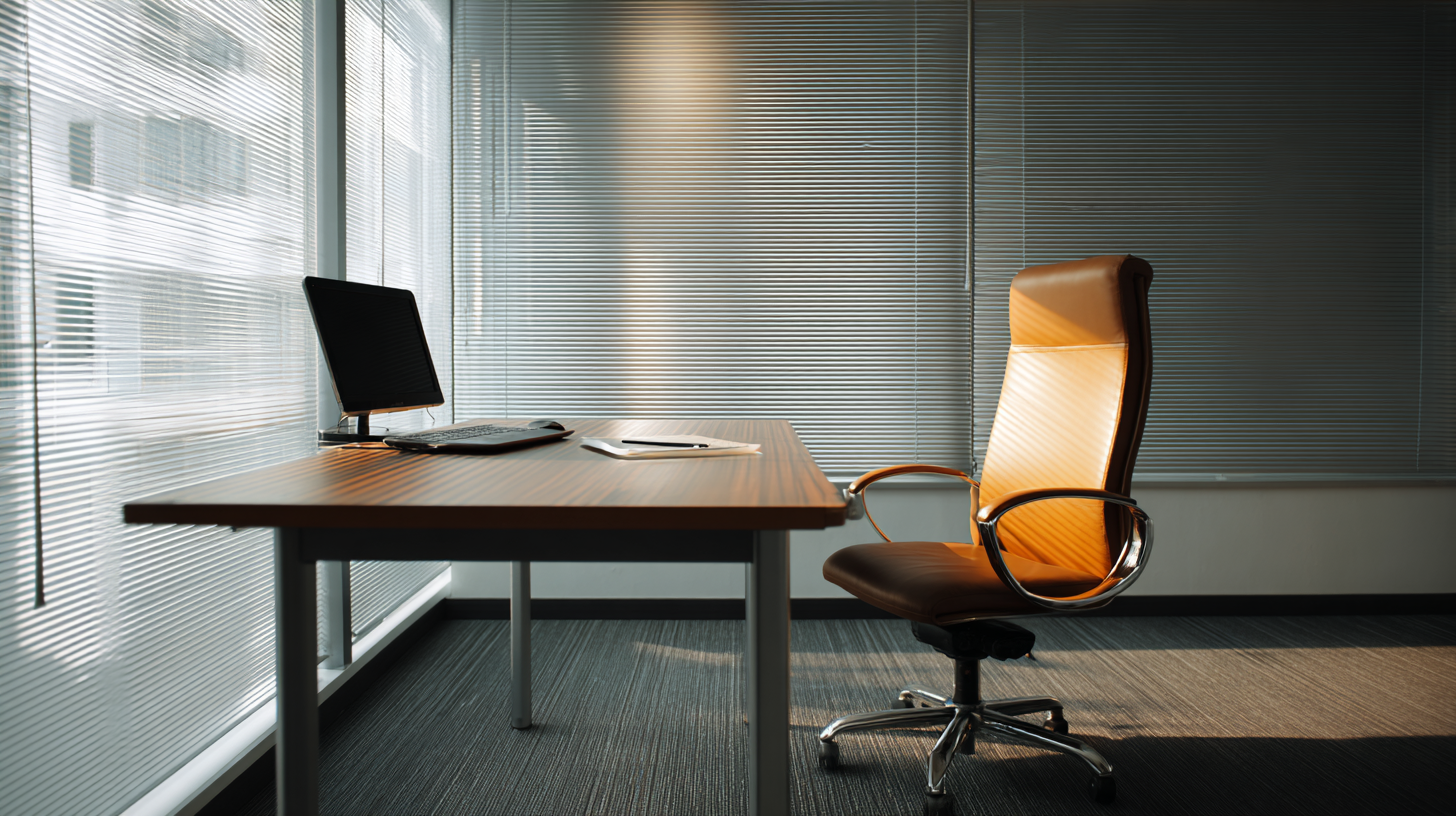 When designing an efficient office layout, understanding space planning is crucial for enhancing workflow and productivity. An optimal office arrangement takes into account not only the dimensions of the space but also how employees interact with one another and their workstations. By strategically placing desks, chairs, and common areas, you can minimize distractions and foster collaboration. It’s essential to create pathways that allow for easy movement and access to essential tools and resources, thereby reducing downtime and frustration.
When designing an efficient office layout, understanding space planning is crucial for enhancing workflow and productivity. An optimal office arrangement takes into account not only the dimensions of the space but also how employees interact with one another and their workstations. By strategically placing desks, chairs, and common areas, you can minimize distractions and foster collaboration. It’s essential to create pathways that allow for easy movement and access to essential tools and resources, thereby reducing downtime and frustration.
In addition to physical placement, incorporating ergonomic furniture is vital for maintaining employee comfort and promoting health. Choose office tables and chairs that not only fit the aesthetic of the space but also support proper posture and reduce strain during long hours of work. Furthermore, consider the flow of natural light and the placement of technology to enhance functionality. By integrating these aspects of space planning, you can create an environment that not only supports productivity but also boosts morale among team members, leading to a more dynamic and engaged workforce.
Material Matters: Selecting Durable and Sustainable Materials for Longevity
When selecting the perfect office table and chair, the choice of materials plays a crucial role in determining both durability and sustainability. High-quality materials can significantly enhance a workspace's longevity, minimizing the need for replacements and repairs. For instance, hardwoods like oak and maple not only provide a sturdy construction but also add a touch of elegance to the office setting. Additionally, metal frames contribute to the structural integrity of chairs and tables, ensuring they withstand daily wear and tear.
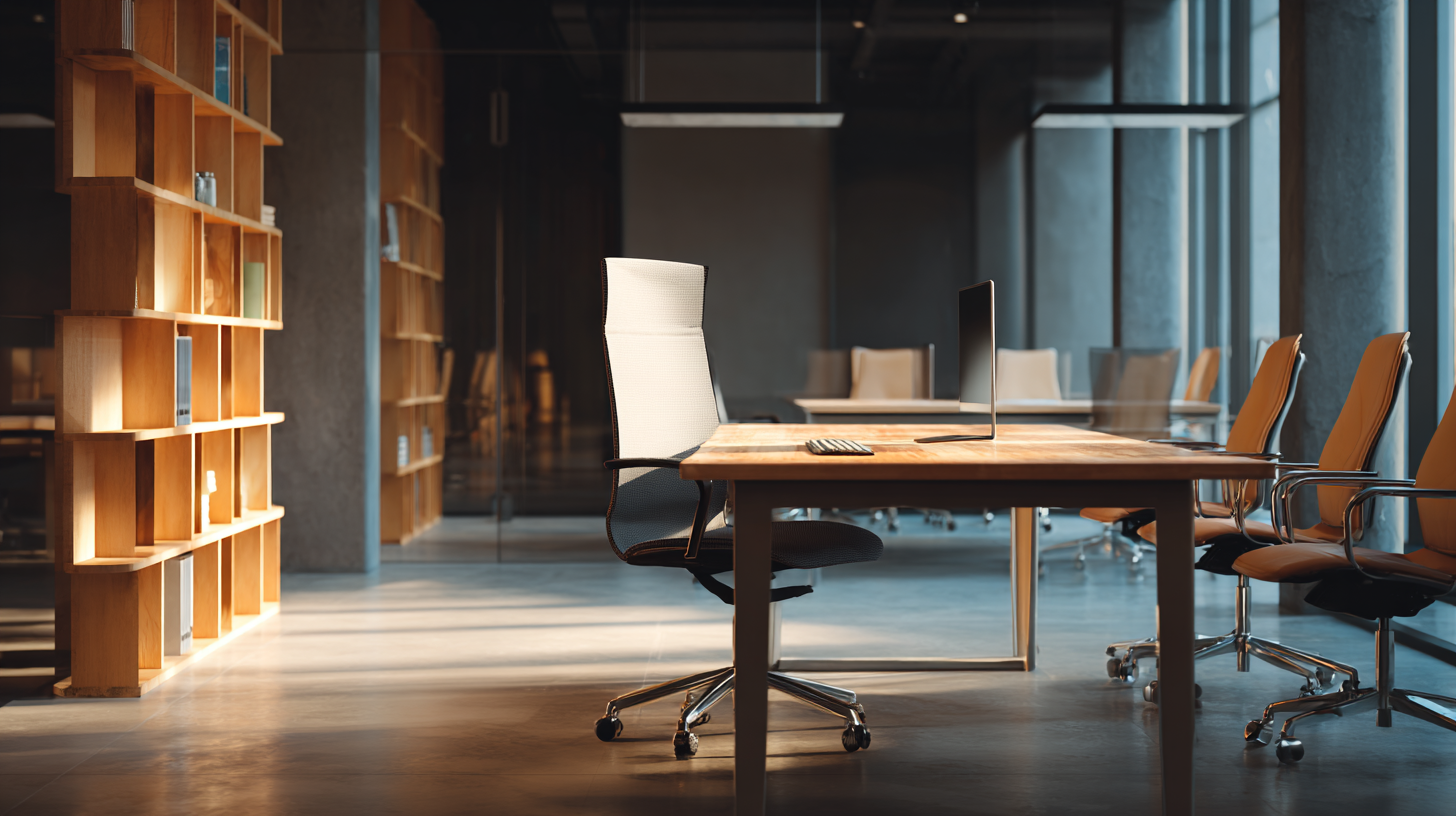
Sustainability is equally important when choosing office furniture. Opting for materials that are eco-friendly, such as bamboo or reclaimed wood, can reduce the environmental impact of your workspace. These materials are not only renewable but also often come with unique aesthetics that can personalize your office environment. Furthermore, look for furniture made from recycled materials, as they help in promoting a circular economy while maintaining high standards of quality and performance. Ultimately, investing in durable and sustainable materials will enhance productivity by fostering a long-lasting and healthy workspace.
Height Adjustability: The Significance of Sit-Stand Options for Enhanced Productivity
When selecting an office table and chair, height adjustability is a critical factor that can significantly impact productivity. Sit-stand desks have gained popularity for their ability to promote a healthier work environment. By allowing users to alternate between sitting and standing throughout the day, these desks can help reduce fatigue and improve focus. This flexibility caters to different work styles and tasks, enabling individuals to find their optimal working posture, thus enhancing overall comfort and efficiency.
Moreover, the ability to adjust the height of both the desk and chair encourages better ergonomics. Proper alignment of the body while working can reduce the risk of strain and musculoskeletal issues, which are common pitfalls of prolonged sitting. Frequent standing and movement stimulate circulation and can even boost creativity and problem-solving abilities. Therefore, investing in height-adjustable furniture is not just about comfort; it is an essential component for fostering a more dynamic and productive workspace.
Aesthetic Appeal: Balancing Functionality and Design for a Positive Work Environment
Creating a workspace that enhances productivity goes beyond basic functionality; it requires a harmonious blend of aesthetics and practicality. Research published by the World Green Building Council highlights that well-designed office environments can boost employee productivity by up to 15%. Aesthetic appeal, achieved through thoughtful design choices, not only improves the visual experience of the workspace but also significantly impacts employee morale and efficiency. Incorporating elements such as color psychology can influence a worker's mood and motivation, with warmer colors reportedly encouraging collaboration while cooler tones promote focus.
Furthermore, choosing the right office table and chair can facilitate better ergonomic practices, which are crucial for maintaining comfort during long hours of work. The American Occupational Therapy Association found that 70% of workers report discomfort from improper office furniture. Thus, selecting aesthetically pleasing yet ergonomic furniture is vital. Opting for furniture that reflects a brand’s identity while supporting physical well-being leads to a more engaged workforce. By balancing aesthetic appeal with ergonomic functionality, businesses can cultivate a work environment that not only looks good but also promotes health and productivity.
10 Essential Tips for Choosing the Perfect Office Table and Chair for Productivity
| Tip | Description | Key Considerations |
|---|---|---|
| 1. Ergonomics | Choose furniture that supports good posture and reduces strain. | Chair height, lumbar support, and tabletop height. |
| 2. Size | Consider the space available and the size of other furniture. | Room dimensions, layout, and airflow. |
| 3. Material Quality | Select durable materials that withstand daily use. | Wood type, metal strength, and surface finish. |
| 4. Aesthetic Appeal | Choose designs that enhance your workspace visually. | Color schemes, styles, and decor matching. |
| 5. Functionality | Ensure that the furniture meets your work needs effectively. | Work tasks, storage needs, and mobility. |
| 6. Customization Options | Look for pieces that can be tailored to your preferences. | Adjustable heights, removable components, and color choices. |
| 7. Budget | Set a budget that reflects quality without overspending. | Price ranges, warranties, and long-term value. |
| 8. Storage Solutions | Incorporate tables and chairs with built-in storage. | Drawers, shelves, and hidden compartments. |
| 9. Compatibility with Technology | Ensure desks can accommodate tech gadgets and cables. | Cable management, power outlets, and device holders. |
| 10. Comfort | Select comfortable seating and surfaces for prolonged use. | Padding, texture, and adjustability. |
Related Posts
-
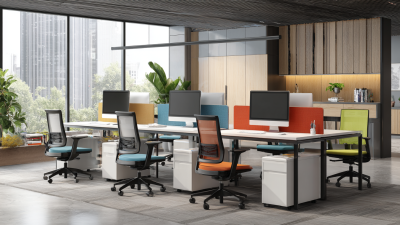
Global Trust in Quality China Made Office Chairs for Your Workspace Needs
-

Trends in the Global Business Desk Market for 2025 Insights and Projections
-
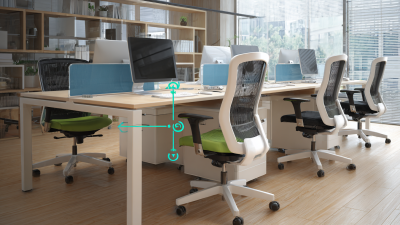
Unlocking Comfort and Productivity with the Best Office Chairs Specifications and Setup Guide
-
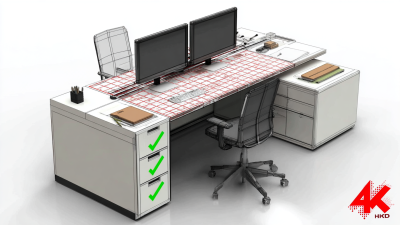
The Ultimate Checklist for Choosing the Best Range Desks: Key Features and Stats You Can't Ignore
-

Unleashing the Power of Chinese Manufacturing with the Best Home Office Desk and Chair
-
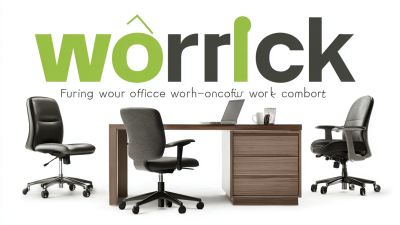
Finding the Right Manufacturer for Premium Office Chairs to Enhance Workplace Comfort
